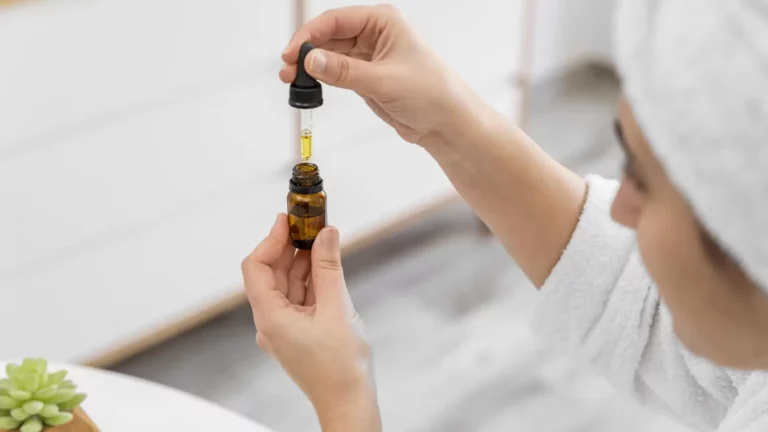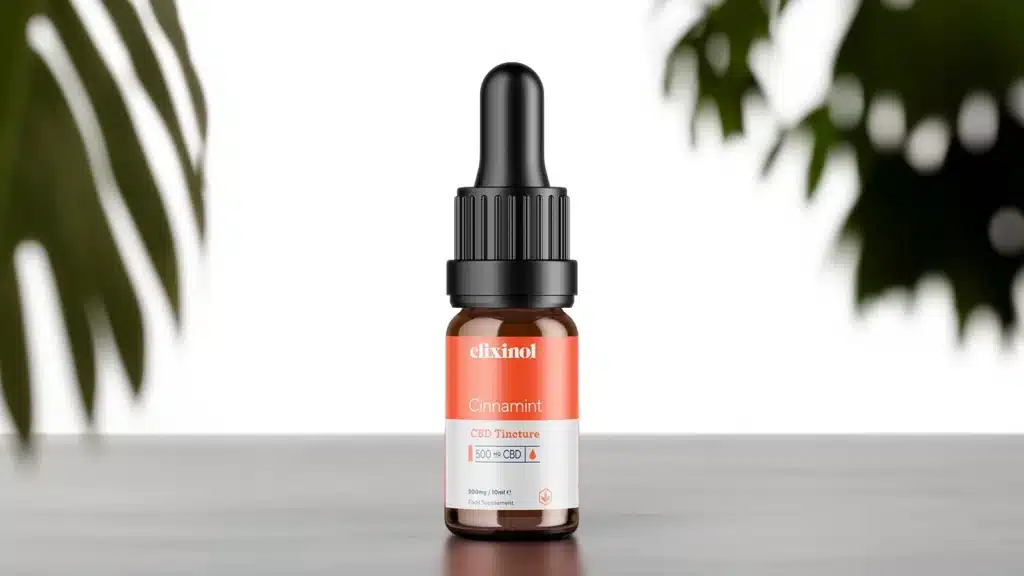
Can CBD Influence Workplace Drug Tests?
September 7, 2023
In a world where the pursuit of holistic well-being and improved health takes centre stage, CBD (Cannabidiol) has emerged as a noteworthy player. Its potential implications for maintaining health and enhancing overall wellness have garnered widespread attention.
Yet, beneath the surface of these promising attributes, a pressing question looms large, especially for those considering integrating CBD into their daily routines: Does CBD oil show in a drug test?
In this article, we embark on a journey of exploration, delving deep into the intricate interplay between CBD, workplace drug tests, and the compelling factors that may hold sway over the results. With an emphasis on cautious and informed decision-making, we seek to shed light on the potential impact of CBD within the context of drug testing.
So, join us as we navigate this enlightening voyage, striving to unravel the mysteries surrounding CBD and its potential influence on workplace drug tests.
An Introduction to CBD
As we embark on this journey of understanding CBD and its potential implications for workplace drug tests, let’s begin by delving into the intricate relationship between CBD and the cannabis plant.
CBD, short for Cannabidiol, is a remarkable compound derived from the cannabis plant, a plant that has long intrigued humanity with its diverse properties. Unlike its more famous counterpart, THC (Tetrahydrocannabinol), CBD does not carry the reputation of inducing the characteristic ‘high’ that is often synonymous with marijuana use.
Instead, studies suggest that CBD may offer an alternative path to relaxation and potential relief from various concerns, all without the intoxicating effects that are commonly associated with marijuana consumption. The distinction between CBD and THC lies at the heart of this exploration.
While both compounds hail from the same botanical source, their effects and implications diverge significantly. As we journey deeper into this discourse, we will uncover the critical distinctions between these compounds and the potential impact of CBD in the context of workplace drug tests.
Can CBD Influence The Drug Test?
Yes, CBD can potentially influence workplace drug tests, but it’s usually not the CBD itself that’s the concern. Most standard workplace drug tests are designed to detect THC, the psychoactive compound in cannabis, not CBD.
However, there are a few important considerations:
-
THC Contamination: CBD products, especially full-spectrum ones, may contain trace amounts of THC. If the THC level in a CBD product is higher than 0.3% or the product is consumed in large quantities, it could lead to a positive drug test result.
-
Broad-Spectrum vs. Full-Spectrum CBD: Broad-spectrum CBD products and CBD isolates are typically THC-free, reducing the risk of triggering a positive drug test. Full-spectrum products contain all cannabinoids found in the cannabis plant, including THC, though in minimal amounts.
-
Quality and Purity: The quality and purity of CBD products can vary. Mislabeling is an issue in the market, and some products may contain higher THC levels than advertised. Choosing products from reputable brands that provide third-party lab testing can mitigate this risk.
-
Type of Drug Test: Most workplace drug tests focus on THC metabolites, not CBD. However, certain specialized tests can differentiate between cannabinoids, but these are less common.
To avoid any potential issues with workplace drug tests, it’s advisable to use broad-spectrum or isolate CBD products that are verified to be THC-free. Always check product labels and third-party lab results for THC content to ensure compliance with workplace policies.

The Potential Influence of Regulated UK CBD Oil
If you are contemplating incorporating CBD into your wellness routine, it’s important to acknowledge that regulated CBD oil in the UK typically contains minimal to no THC. This factor distinguishes it from recreational cannabis, which is known for its THC content.
Brands like Elixinol are recognized for their dedication to quality and transparency, often providing laboratory results that indicate the absence of THC in their products.
The Significance of Purchasing from Reputable Sources and Checking THC Content
When it comes to embarking on your CBD journey, one paramount factor stands out: the source of your CBD products. Safely navigating the realm of CBD necessitates choosing products from reputable sources, and Elixinol is a beacon of trustworthiness in this industry.
These distinguished sellers hold themselves to stringent quality standards, leaving no room for doubt when it comes to the integrity of their offerings. What sets apart these reputable sources, like Elixinol, is their unwavering commitment to transparency and consumer satisfaction.
They recognize the importance of providing you with the assurance you need to embark on your wellness journey with confidence. Whether you seek stress relief, improved wellness, or other potential benefits, their products are designed to meet your needs.
Furthermore, in your quest for a harmonious balance between wellness and professional responsibilities, it is prudent to always check the THC content on product labels and through online resources.
Studies suggest that CBD products with minimal THC content are less likely to trigger a positive result on a drug test. By adhering to this practice, you take a proactive step in aligning your wellness goals with your work commitments.
In the world of CBD, where choices abound, your selection of a reputable source makes all the difference. It ensures that your wellness journey remains a source of positive impact without any unwarranted concerns.
So, embark on your path to well-being with confidence, knowing that your choices are grounded in quality and trust.

Understanding the Legal Status of Cannabis in the UK
Navigating the landscape of CBD usage requires a clear understanding of the legal framework surrounding cannabis in the United Kingdom. In the UK, cannabis maintains its classification as a Class B drug, an important designation that renders its possession, use, or distribution illegal.
This legal stance underscores the importance of prudence when it comes to substances derived from the cannabis plant. However, there exists a crucial distinction to be made: CBD products with minimal to no THC content fall under a different legal category.
These products are legally available for purchase in the UK. This significant differentiation allows individuals to potentially explore the potential benefits of CBD without the spectre of contravening their employer’s drug and alcohol policy or a zero-tolerance stance.
By staying informed about the legal nuances surrounding cannabis and CBD in the UK, you can make informed choices that harmonize your pursuit of wellness with your professional responsibilities. It’s a testament to the importance of understanding the regulatory landscape and making choices that align with your health and legal obligations.
Considering Regulated CBD Oil for Potential Wellness Benefits
Beyond concerns related to drug tests, it is essential to recognize the potential wellness benefits of CBD. Many individuals turn to CBD to support stress management and potential anxiety relief.
By opting for regulated CBD oil, you can potentially explore these benefits without compromising your commitment to adhering to your employer’s drug and alcohol policy or a zero-tolerance stance.
In conclusion, the potential impact of CBD on workplace drug tests is a multifaceted topic influenced by several factors, including the quality and source of CBD products. By selecting reputable brands like Elixinol and being mindful of THC content, you can potentially enjoy the benefits of CBD while minimizing concerns about professional repercussions.
In the journey towards well-being and tranquillity, making informed choices is of utmost importance.
Explore more CBD-related topics:
